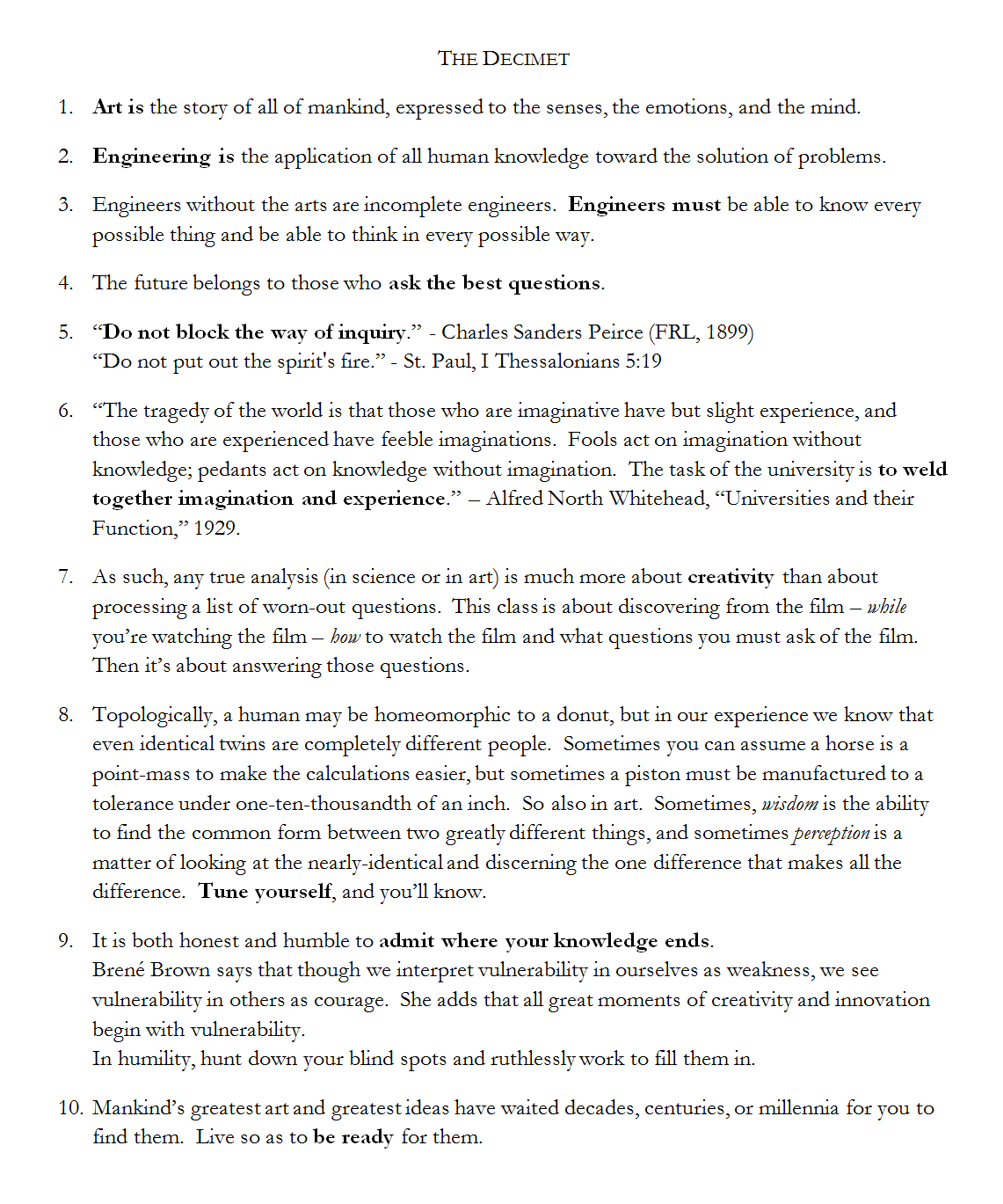10oclockdot:
For the past year, I’ve distributed this document in my film classes at the Missouri University of Science and Technology. Most of my students are in various engineering programs and have not taken any art class before, so it seemed right to draw up a set of precepts to guide our approach to inquiry. As the new school year begins, I offer it to a wider audience.
The Decimet
- Art is the story of all of mankind, expressed to the senses, the emotions, and the mind.
- Engineering is the application of all human knowledge toward the solution of problems.
- Engineers without the arts are incomplete engineers. Engineers must be able to know every possible thing and be able to think in every possible way.
- The future belongs to those who ask the best questions.
- “Do not block the way of inquiry.” - Charles Sanders Peirce (FRL, 1899)“Do not put out the spirit’s fire.” - St. Paul, I Thessalonians 5:19
- “The tragedy of the world is that those who are imaginative have but slight experience, and those who are experienced have feeble imaginations. Fools act on imagination without knowledge; pedants act on knowledge without imagination. The task of the university is to weld together imagination and experience.” – Alfred North Whitehead, “Universities and their Function,” 1929.
- As such, any true analysis (in science or in art) is much more about creativity than about processing a list of worn-out questions. This class is about discovering from the film – while you’re watching the film – how to watch the film and what questions you must ask of the film. Then it’s about answering those questions.
- Topologically, a human may be homeomorphic to a donut, but in our experience we know that even identical twins are completely different people. Sometimes you can assume a horse is a point-mass to make the calculations easier, but sometimes a piston must be manufactured to a tolerance under one-ten-thousandth of an inch. So also in art. Sometimes, wisdom is the ability to find the common form between two greatly different things, and sometimes perception is a matter of looking at the nearly-identical and discerning the one difference that makes all the difference. Tune yourself, and you’ll know.
- It is both honest and humble to admit where your knowledge ends.Brené Brown says that though we interpret vulnerability in ourselves as weakness, we see vulnerability in others as courage. She adds that all great moments of creativity and innovation begin with vulnerability.In humility, hunt down your blind spots and ruthlessly work to fill them in.
- Mankind’s greatest art and greatest ideas have waited decades, centuries, or millennia for you to find them. Live so as to be ready for them.
